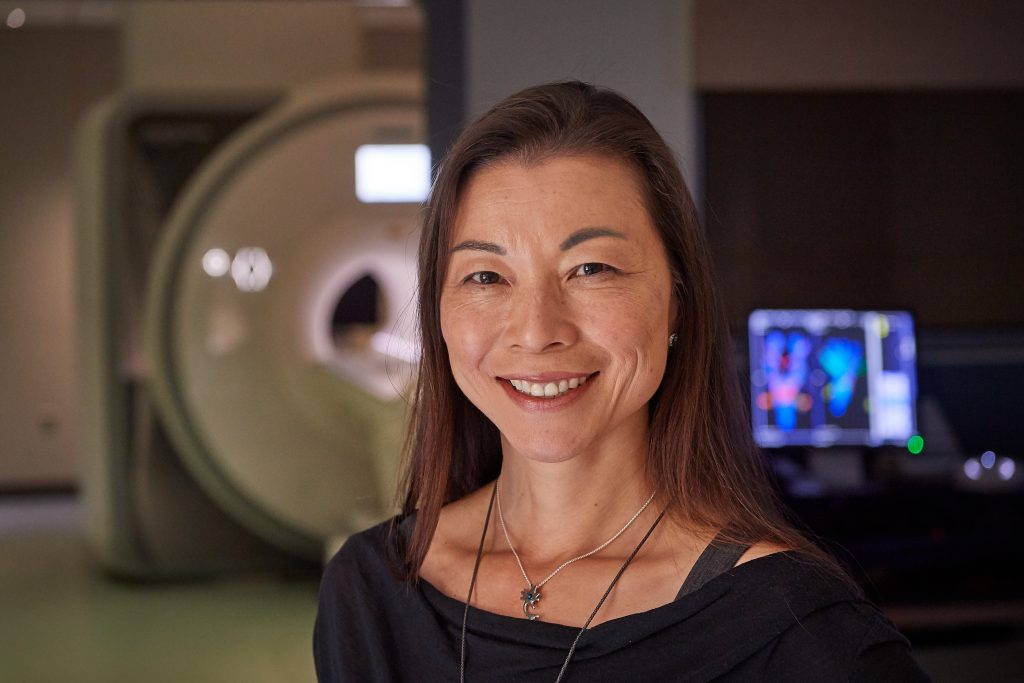Dr. Hoeft will continue leading the BIRC and conducting research as UConn Waterbury’s director. Congratulations, Fumiko!

Come join UConn’s outstanding cognitive science community and the Department of Speech, Language, and Hearing Sciences, right next door to BIRC!
Dr. Ross W. Buck was one of the first researchers to use BIRC and continued his work on the brain mechanisms of emotional and cognitive empathy in nonverbal communication until shortly before his death. He will be greatly missed at BIRC.
Dr. Ross W. Buck passed away peacefully in Windham Hospital on September 1, 2022. He was born on August 16, 1941 in Sewickley, PA to Ross and Ruth Buck. He was preceded in death by his parents and his sister, Judith Buck Davis. He leaves his wife, Marianne of 58 years; children Ross William and his children Eleanor (Al) and William Christopher of Washington, DC; Maria Lenore of Brooklyn, NY; Nancy Jenney of White Plains, MD; and Theodore Reed and his children Maya Rose and Hannah Judith of Tolland, CT. He also leaves cousins, Lynda Thill of Gibsonia, PA and Marilyn McAllister of Coraopolis, PA, sister- and brother-in law, Nancy and Howard Pears of Meadville PA, in addition to many nieces and nephews. Ross also leaves many grieving colleagues and those he often referred to as his second family, former graduate students – too many to count from his 48 years of teaching at the University of Connecticut, Storrs. Although he was an amazing father to our four children, he always had room in his heart for more of his students whom he mentored.
Ross earned his PhD in Psychology from the University of Pittsburgh and his early career included work at the University of Pittsburgh School of Medicine followed by appointments to Carnegie Mellon University and the University of Connecticut, where he was a Professor of Communication and Psychology. He authored four books on Communication, Emotion, Motivation, and Nonverbal Communication and numerous chapters and professional journal articles. He served as Editor of the International Society of Research on Emotion Newsletter and belonged to many professional organizations.
The Brain Imaging Research Center (BIRC) is soliciting your suggestions for speakers to fill remaining openings in the 2022-2023 BIRC Speaker Series. The BIRC supports research using human brain and whole-body magnetic resonance imaging, electrophysiology, and non-invasive stimulation. The past speaker series has featured renowned speakers working broadly in magnetic resonance imaging, cognitive neuroscience, and related fields. Suggestions may be submitted using this form at any time, but submissions received by July 11th will be given special consideration for the upcoming year. We welcome suggestions from all disciplines and career stages.
As always, we are particularly interested in speakers who introduce conceptual or methodological innovations that inspire UConn researchers to explore new research directions and applications in magnetic resonance imaging, physiology, and brain stimulation, and develop interdisciplinary collaborations.
Congratulations to Elisa Medeiros on receiving the 2022 CLAS Staff Excellence Award! The Staff Excellence Award honors individual staff members across the College who bring distinction and innovation to their work and help to promote the CLAS mission.
Each year, the International Dyslexia Association (IDA) acknowledges the achievements of leading researchers and practitioners in the dyslexia field, as well as those of individuals with dyslexia who exhibit leadership and serve as role models in their communities. These award recipients have done so much to advance the mission of helping all those who struggle to read.
The Samuel Torrey Orton Award is the International Dyslexia Association’s highest honor. The Award recognizes a person or persons who have:
Congratulations, Fumiko! This is a well deserved honor.
(Information courtesy of International Dyslexia Association)